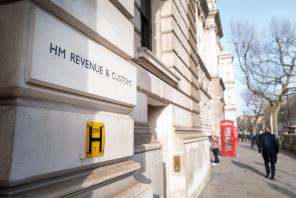

Yet, of HM Revenue & Customs’ top 10 prosecutions in 2018, not one involved a corporate.
The successful cases chosen by HMRC bear little resemblance to the complex and global variety the state is seeking to deter and punish, which raises the familiar question of whether sanctioning individual bad actors can adequately deter corporate crime.
With limited resources, there is always a tendency to focus on cases that are likely to achieve positive outcomes in return for a modest time and labour investment.
HMRC’s targeting of so-called low-hanging fruit certainly gave cause for concern to the House of Lords Economic Affairs Committee, which reported its misgivings in December. And it is not the first time that this criticism has been made of HMRC.
It is not that HMRC has a half-empty toolbox with which to combat tax evasion offences; the agency is armed with a variety of potent weapons.
But it is very difficult to identify any coherent strategy from HMRC when deploying these weapons in the face of corporate malfeasance.
Included in this toolbox is the power, following a criminal investigation, to invite the target corporate to enter into a deferred prosecution agreement (DPA).
While DPAs have been used against major companies in the US - including Julius Baer, Basler Kantonalbank and UBS - and have led to multiple million dollar settlements, no such arrangement has been contemplated in the UK for tax offences.
Despite the fact that HMRC had the power to prosecute corporates for cheating the revenue for more than 100 years, there has never been a great appetite for this nuclear option.
It remains to be seen how this will change, given the introduction of the corporate offence of facilitating tax evasion.
HMRC has confirmed that it is currently investigating a number of corporates for this offence.
Many reasons have been put forward for this state of affairs, but successive public statements of HMRC policy have been deliberately vague. This is of little help to corporates and their advisers when whistleblowers threaten to expose non-compliance or the first signs of a corporate scandal emerge.
For corporates, prevention is certainly better than a cure.
The government wants corporates to cultivate a culture of preventing economic crime; an objective that is not going to disappear.
This is demonstrated by a recent letter from MPs and peers to Prime Minister Theresa May calling for the introduction of a new corporate liability offence for failing to prevent other economic crimes.
In order to benefit from the statutory defence against facilitating tax evasion, corporates must implement risk assessments and their prevention procedures must be proportionate.
It is essential that there is board level commitment to the process and that due diligence is robust. The procedures must be communicated throughout the business, with employee training where appropriate, and must be subject to ongoing review.
It would be sensible if corporates also included some preliminary preparation for the worst-case scenario of a ‘dawn raid’.
If, despite their prevention strategy (or perhaps because of its absence) HMRC nevertheless investigates, it is imperative to obtain specialist criminal advice as soon as possible.
If HMRC is to demonstrate that it has teeth, it needs a few corporate scalps to exhibit as trophies on its wall.
However, no corporate wants to be the taxidermised souvenir of HMRC’s first big kill, held up as an example to others.
If alternatives to criminal prosecution are available to a corporate, they should be explored as soon as possible.
But, while carrots and sticks may be familiar choices, should the professional adviser go shopping at the greengrocers or the hardware store?
Rachel Cook is a senior associate at Peters & Peters Solicitors LLP




